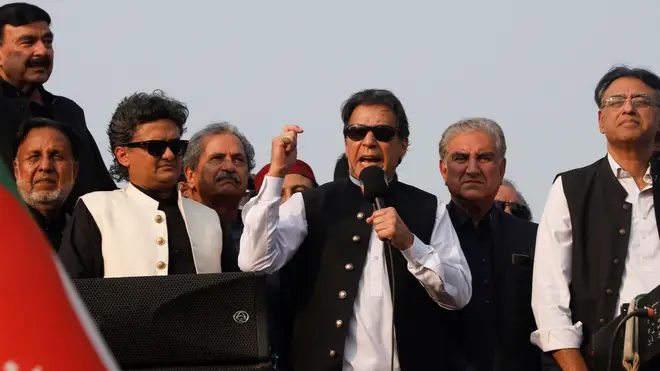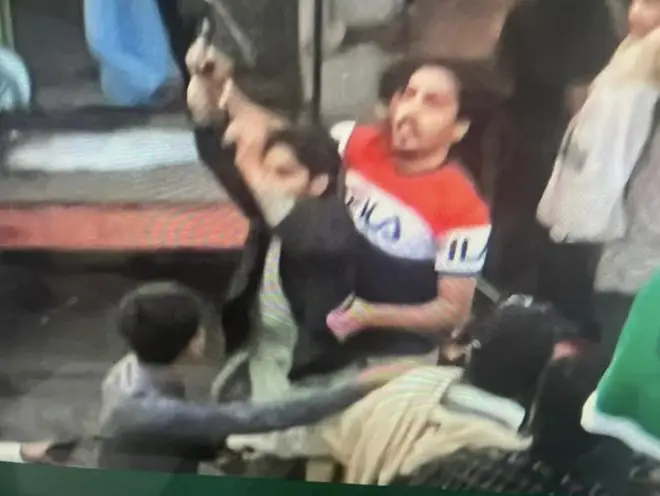
Ian Payne 4am - 7am
3 November 2022, 11:40 | Updated: 3 November 2022, 13:32

Pakistan's former Prime Minister Imran Khan has been targeted in an assassination attempt and was injured after being caught in gunfire.
Local media said he has been shot in the leg and was rushed to hospital.
According to local media a gunman opened fire on Mr Khan's vehicle, using fireworks as cover for the noise of the shots.
Four people were injured and Imran Khan was hit in the leg and was rushed to hospital where he is said to be in a stable condition. A gunman has been arrested.
Pakistani politician Shehryar Afridi posted online: “Millions are praying for health & recovery for my leader Imran Khan, he is putting his life to change the fate of this nation. He is in Pakistan, while all leaders fled Pakistan, he is here to bring the change.”
A senior leader of Pakistan’s Tehreek-e-Insaf (PTI) party, Faisal Javed, was also injured.

Read more: Gareth Southgate slammed for claiming Qatar workers "united" in wanting World Cup
Read more: Bank of England due to announce biggest interest rate rise since the 1980s
The unidentified assailants opened fire during a party rally near the Allah Ho Chowk in Wazirabad in north eastern Pakistan.
He was leading a protest march there calling for snap elections in the country.
Last month he challenged an election commission ruling disqualifying him from holding public office for five years.
The commission on Friday found that Mr Khan illegally sold state gifts and concealed assets as premier.
The ruling disqualified Mr Khan under Pakistani law from holding public office for five years and he lost his seat in parliament automatically.
The commission's decision deepened lingering political turmoil in the impoverished Islamic country, which is struggling with a spiralling economy, food shortages and the aftermath of unprecedented floods this summer that killed 1,725 people, displaced hundreds of thousands and triggered a surge in malaria and other flood-related diseases.